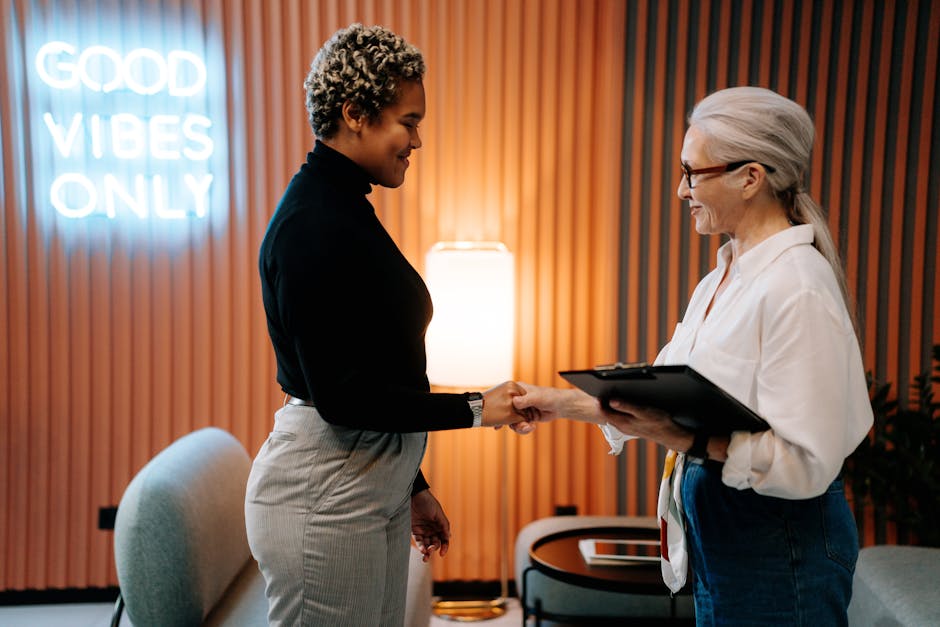How to Prepare for Behavioral Interviews
Behavioral interviews are a common method used by employers to assess candidates' past experiences and predict their future performance. These interviews typically focus on how a candidate has handled various situations in the past, providing insights into their skills, attitudes, and problem-solving abilities. Preparing for these interviews involves understanding the types of questions that might be asked, reflecting on past experiences, and practicing structured responses.

Understanding Behavioral Interview Questions
Behavioral interview questions are designed to elicit detailed responses about specific situations from a candidate's past. These questions often start with phrases like "Tell me about a time when..." or "Give an example of...". The aim is to gather information about how the candidate has handled challenges, worked in teams, managed conflicts, and demonstrated leadership skills.
To effectively prepare for these questions, candidates should familiarize themselves with the STAR method:
- Situation: Describe the context within which you performed a task or faced a challenge at work.
- Task: Explain the actual task or challenge that was involved.
- Action: Describe the specific actions you took to address the task or challenge.
- Result: Share the outcomes or results of your actions.
The STAR method helps structure answers in a clear and concise manner, ensuring that each component of the response is covered comprehensively.
Reflecting on Past Experiences
Preparing for behavioral interviews requires candidates to reflect deeply on their past professional experiences. This reflection involves identifying key moments where they demonstrated important skills such as leadership, teamwork, problem-solving, and adaptability. It's helpful to review job descriptions and performance reviews to pinpoint relevant examples that align with the competencies sought by potential employers.
Candidates should create a list of experiences that showcase their abilities in different areas. This list can include successful projects, instances where they overcame significant obstacles, examples of teamwork and collaboration, and any situations where they demonstrated initiative or creativity.
| Skill | Example Situation |
|---|---|
| Leadership | Led a cross-functional team to complete a project ahead of schedule. |
| Teamwork | Collaborated with colleagues from different departments to achieve a common goal. |
| Problem-Solving | Developed a solution to reduce operational costs by 15%. |
| Adaptability | Successfully managed transitions during company restructuring. |
Practicing Structured Responses
Practice is crucial when preparing for behavioral interviews. Candidates should rehearse their responses to common behavioral questions using the STAR method. This practice can be done alone, with a friend, or through mock interviews with career coaches or mentors.
During practice sessions, focus on delivering responses clearly and confidently. Pay attention to body language and eye contact as well, as these non-verbal cues can significantly impact the impression made during an interview. It's also beneficial to record practice sessions to review and refine responses further.
Researching the Company and Role
A thorough understanding of the company and the role applied for is essential in behavioral interview preparation. Researching the company's values, mission, recent projects, and industry position can provide valuable context for tailoring responses to align with what the employer is looking for in a candidate.
This research can be conducted through various sources such as the company's website, recent news articles, LinkedIn profiles of current employees, and industry reports. Understanding the company's culture and priorities enables candidates to highlight relevant experiences that resonate with the employer's expectations.
Tips for Success During the Interview
Here are some practical tips for excelling in behavioral interviews:
- Be Honest: Authenticity is crucial. Ensure that all examples shared are truthful and accurately represent your experiences.
- Stay Positive: Frame responses positively, even when discussing challenges or failures. Focus on what you learned and how you grew from those experiences.
- Be Concise: Keep responses focused and avoid rambling. Aim for clarity and precision in your answers.
- Prepare Questions: Have thoughtful questions ready to ask the interviewer about the role and company culture.
- Follow-Up: Send a thank-you email after the interview to express appreciation for the opportunity and reiterate interest in the position.
Behavioral interviews are more than just recalling past achievements; they offer an opportunity to present oneself as a well-rounded candidate who aligns perfectly with an employer's needs.